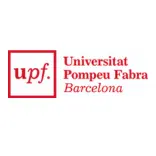Study in Spain
– Aara Consultancy can help you choose the right country and program for your Study Abroad needs and goals, and guide you through the entire application process.
Why Study in Spain?
1: Prestigious Universities: Spain is a top choice for quality education, with globally respected universities. Renowned for international exchanges, it’s also increasingly popular for full-degree programs. The diverse range of courses spans business, economics, engineering, medicine, and more. Notable institutions include the University of Barcelona, Universidad Carlos III de Madrid, and EU Business School.
2: Vibrant Sports Culture: Immerse yourself in Spain’s rich sports culture, featuring football, basketball, cycling, tennis, and the increasingly popular sport of padel. With over 200 golf courses, diverse outdoor activities like hiking and skiing, and abundant water sports along the coastline, there’s something for everyone.
3: Budget-Friendly Living: Spain remains affordable for international students despite rising prices. Opt for student dorms or shared flats for housing and explore free or low-cost activities, including cultural attractions, events, and festivals. The tapas culture also offers a budget-friendly way to enjoy high-quality food while socializing.
4: Mediterranean Lifestyle: Embrace the Mediterranean lifestyle, promoting a balanced approach to work and leisure. Adopt healthier habits by taking walks, enjoying siestas, and indulging in the renowned Mediterranean diet—fresh, simple, and full of flavour.
5: Learn Spanish: Enhance your CV by learning one of the world’s most spoken languages. While many programs are offered in English, taking the opportunity to learn Spanish adds a valuable skill. Universities provide language courses, and the immersive environment offers ample chances to practice and enhance your language skills.
Top universities in Spain


University of Barcelona
The University of Barcelona, established in 1450, stands as a venerable institution with a profound impact on Spain’s intellectual heritage. Its historic campuses, including the emblematic Edifici Històric, provide an inspiring setting for academic pursuits. The university’s commitment to cutting-edge research is evident in its numerous research centers and collaborations, making it a focal point for scholars seeking excellence across disciplines.


Autonomous University of Barcelona
The Autonomous University of Barcelona, born amidst the societal transformations of 1968, has evolved into a modern bastion of academic innovation. Set against the backdrop of the Collserola Natural Park, its campuses provide a serene environment for learning and research. The university’s emphasis on interdisciplinary studies and community engagement fosters a vibrant intellectual community that extends beyond traditional academic boundaries.


Pompeu Fabra University
Pompeu Fabra University, established in 1990, is a testament to Spain’s commitment to contemporary education. Located in the heart of Barcelona, its campuses are dynamic hubs of intellectual activity. The university’s focus on social sciences, humanities, and communication reflects a forward-thinking approach to preparing students for the challenges of the digital age.


University of Valencia
With origins dating back to the 15th century, the University of Valencia is a cornerstone of Spanish higher education. Its campuses, spread across the historic city, encapsulate a blend of tradition and modernity. The university’s research initiatives span diverse fields, contributing not only to academic knowledge but also to the cultural and scientific enrichment of the Valencia region.


Autonomous University of Madrid
The Autonomous University of Madrid, founded in 1968, represents a dynamic force in Spanish academia. Its sprawling campus, located in the scenic Cantoblanco area, hosts a diverse array of academic disciplines. The university’s commitment to research and innovation is exemplified by its state-of-the-art laboratories and collaborations with international institutions, making it a hub for groundbreaking discoveries.
Admission Requirements to Study in Spain
Bachelor Programs:
– Valid school leaving certificate and eligibility for university entrance in the home country.
– Non-EU/EEA Students:
– Recognition of the school certificate through ‘homologación’ at the Spanish embassy/consulate.
– EBAU (selectivity) entry exam, comprising General and Specific phases.
–EU Students:
– Generally follow the same requirements as Spanish students.
– May need to take Pruebas de Competencias Específicas (PCE) exams, depending on the university/program.
Master Programs:
– Relevant bachelor’s degree or equivalent.
– Language proficiency results based on the program’s medium of instruction.
Doctoral Programs:
– Provide relevant certificates, including bachelor’s and master’s degrees.
– Language requirements based on the program’s instruction language.
Language Requirements:
– Spanish Language:
– Proof of proficiency through DELE test (Diploma de Español como Lengua Extranjera).
– English Language:
– English proficiency for programs in English.
– Accepted test results include TOEFL or IELTS; other forms may be considered upon contacting the university.
Popular Subjects
Law Programs
Arts and Humanities
Marketing and Finance
STEM Degrees
Budget Requirement for Study in Spain
- Cost Estimation:
Tuition rates for Bachelor programs range from 750 EUR to 2,500 EUR per year, while tuition fees for Master programs range from 1,000 EUR to 3,500 EUR per year, making Spain an affordable option for international students. Private universities determine their own tuition, which can exceed 20,000 EUR per year. Living costs: Approximately 800-1,200 euros per month.
- Additional Resources:
Please feel free to call Aara Consultancy Team for Education Loan Assistance.
Study in Spain – Frequently Asked Questions
Study gap acceptance varies but recent academic or work experience is typically preferred.
Spain offers post-graduation work opportunities, allowing students to stay and work after completing their studies.
Yes, there are pathways to permanent residency for those who meet the criteria.
Accommodation options include university dormitories, private apartments, or shared housing. Universities often assist international students in finding suitable housing.
Bachelor’s programs typically last 3-4 years, master’s programs 1-2 years, and Ph.D. programs 3-4 years.
Spanish proficiency tests like DELE or English proficiency tests like IELTS or TOEFL may be required.
Yes, international students are allowed to work part-time during the academic year and full-time during scheduled breaks.
